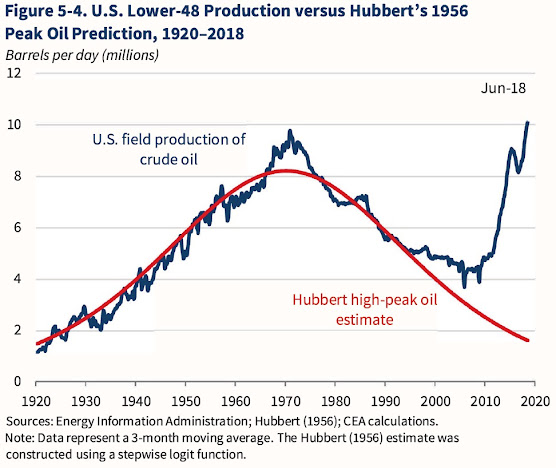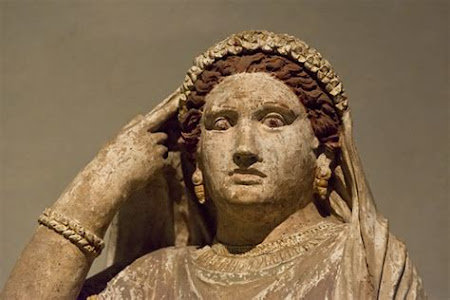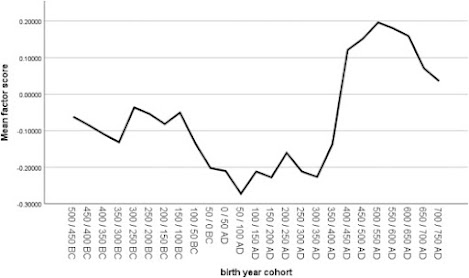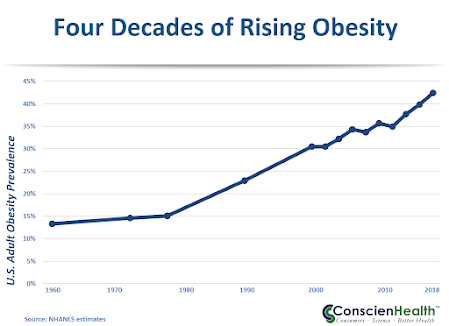Someday, someone will write a history of the covert psyops of the 20th and 21st centuries. It will surely be a difficult story to unravel, because they are, indeed "covert operations." Yet, it is not impossible to detect certain patterns that repeat all over history's flow. It is an exercise that can help us wade through the tsunami of propaganda we are immersed in, right now. So, rather than delving into the current situation, let me tell you a story of a historical case that we can use as an example. It is a fascinating story, little known outside Italy, but it does tell us how easy it is for a country to self destroy by the wrong use of propaganda, especially with some help from foreign enemy powers.
Let me tell you the story of how Italy wanted to become a world empire and how it utterly failed at the task, with just a little help from Britain, the Perfidious Albion. We start with the unification of Italy, in 1861, when the Kingdom of Piedmont defeated and annexed the Kingdom of Naples. If that happened, it was because Britain wanted it to happen.
It was a strategic issue. At that time, Britain controlled the Mediterranean Sea by controlling the two connections with the outside oceans, Gibraltar and the Suez Canal, while maintaining a military base on the island of Malta. By the 1830s, Britain had started having problems with France, which was showing ambitions of expanding into the Mediterranean Region. The British had already been shocked by Napoleon's dash into Egypt, which had threatened their whole domination system. They absolutely wanted to avoid that it could happen again.
Their solution was shrewd and efficient: creating Italy as a unified country. That strip of land right in the middle of the Mediterranean Sea would function as a barrier to stop French expansion in North Africa. And the beauty of the maneuver was that those perfidious Albionics even managed to convince the French ruler, Emperor Louis Napoleon, to help them in the task. How the French could be conned so easily remains a historical mystery that probably nobody ever will solve. But it may have involved the most beautiful woman of that age, Countess of Castiglione.
No matter how, by 1861, Italy was a reality created by the concerted effort of the major Mediterranean Powers of the time. By 1911, the Italian government claimed its rightful chunk of the North African coast, the region we call today "Libya," and that blocked forever all French attempts to expand to create what could have become a French Lake. The Italians were grateful to Britain and spoke of their "Fratellanza" ("brotherhood") with the British.
Everything was going well in the best of worlds when, in the 1920s, something in the strategic engine started clanking ominously. The British suddenly discovered that Italy was not a tender lover, but rather a courtesan who would obey orders only if paid. And in this case, the payment was to be made in hard coal.
England had been fueling the Italian industrial revolution for about one century by exporting coal to Italy, but now it found that it could not increase production anymore. In the 1920s, nobody had any idea of what was the role of depletion on mineral production, but it was clear that England couldn't produce enough coal to satisfy the appetite of the growing Italian economy.
Behaving exactly like a courtesan, Italy then started dallying with another lover, Germany, whose coal production was showing no signs of decline. By 1922, Benito Mussolini had taken power in Italy. By 1926, he was the absolute dictator. In terms of international politics, his knowledge was no more than rudimentary, but it didn't take an especially bright mind to understand that the decline of British coal production gave Italy a unique historical chance. By pivoting on German coal, Italy could push Britain out of the Mediterranean Sea and turn it into an Italian Lake. (if the plan had succeeded, maybe you would be reading these notes in Italian!).
Seen in this light, what happened in 1939 and onward makes perfect sense. We don't know if Mussolini had a specific plan -- from what we know from the notes of his son-in-law, he seemed to be mainly interested in boasting his overinflated ego, making flamboyant gestures, and throwing his weight around. But, on the whole, the behavior of the Italian government during the first two years of the war made sense if the strategic objective was to dominate the Mediterranean region.
So, Italy attacked Greece in 1940, with the idea of denying the Greek seaports to Britain. At the same time, the army moved Eastward along the North African Coast to attack Egypt. If the Italians had taken Alexandria, it would have meant for the British to lose the Suez Canal and, with it, perhaps the whole war.
It is bewildering how these two operations, both strategically sound in themselves, became historical disasters. In Greece, the Italians were bogged down for months in the snowy mountains of Epirus and suffered terrible losses. Eventually, the intervention of Germany forced Greece to surrender. But it was an unbelievable slap in the face for Mussolini who had boasted that "we will break Greece's back!"
But it was the North African campaign that sealed the fate of Italy. In a few months, the ill-conceived Italian attack on Egypt turned into a rout. Italy lost more than 100.000 soldiers, most of them taken prisoner. It was a kind of loss that a minor power, such as Italy, could not possibly afford. And, as they say, "the rest is history."
Now, let's pause for a moment to reflect. How was it that Italy found itself so badly unprepared for a task that its ruler, the Duce, had been, theoretically, preparing for years? Italy was not a great power, but it was an industrialized country with plenty of competence in many fields. Italian technology was renowned, especially in aeronautics. Just read the story of the "
Schneider Trophy," a speed competition among seaplanes, to see how Italian engineers could compete with their British and American colleagues. And yet, the Italian Air Force found itself tasked with subduing Britain by using
obsolete canvas biplanes. How could that be?
Let me propose an interpretation. It involves a certain degree of fantasy and nobody will ever be able to prove that it is true. But, who knows? After all, Albion IS perfidious, as we all know!
So, let's put ourselves in the shoes of British admiralty in the 1920s. We have this problem. This British-created creature, Italy, that was supposed to be just a counterweight against France, now has started to behave like a golem and to disobey its creators. It needs to be controlled before it is too late. Yes, but how?
As we enter this line of thought, we find an interesting event. In 1925, there was an "exchange of notes" between Britain and Italy regarding Ethiopia. Known as the "Anglo-Italian Agreement" it essentially said that Ethiopia was part of the Italian sphere of influence. This agreement had a deep strategic significance. Essentially, the British were telling Italians, "go ahead, you can do whatever you want in Ethiopia. We won't stop you" Perfidious Albion? I think so. VERY perfidious.
There followed a few years of covert planning for an invasion of Ethiopia. It was not an impossible task in itself, but Italy didn't have the kind of "projecting power" that would have allowed its military to invade and control a remote country that was reachable only by sea. It could be done only with the benevolent blessing of Britain -- which is evidently what the Duce was counting on. But never-ever trust those perfidious British, as all continental Europeans know! How Mussolini could be conned in this way is another of the mysteries of history. We already said that at, the time of the unification of Italy, the French ruler, Louis Napoleon, was controlled by using a beautiful woman. But Mussolini had plenty of women and he was more the power-monger type. Controlling him may have involved playing on his inflated manhood, leading him to see himself as the glorious avenger of a previous defeat of the Italian Army in Ethiopia, at Adwa, in 1896.
No matter how, by 1934 a major propaganda campaign started in Italy with the idea of convincing the public that it was a good idea to conquer Ethiopia. It involved slander campaigns against Ethiopia, scientific studies showing the inferiority of the black races in comparison to the white ones, and how modern Italians were the true heirs of the noble Roman warriors who had created and defended the greatest empire in history. That kind of thing. The slander campaign implied painting Ethiopians as insects to be exterminated with insecticides (it was done for real, using chemical weapons).

After three years of campaign, the Italian public was completely bamboozled into believing that, yes, their destiny was in the "place in the sun," the way Ethiopia started to be described (as if Italy didn't have enough sun). You have to read the documents of the time to understand how well it worked. People were completely hypnotized. Just imagine yourself in 1934 asking the question, "you know, folks, before we attack Ethiopia, wouldn't it be a good idea to carry out a cost-benefit analysis?" And you would discover that propaganda reduces the level of the discussion to that of the most stupid person involved in it.
Propaganda is like a radio set that you can turn on, but cannot turn off. Once it is on, it keeps blaring its music into your ears at full volume, until you can't hear -- nor even understand -- any other music. Ethiopia was invaded and conquered in 1935, with the appropriate slaughters, exterminations, destructions, and all that. And the new Italian Empire was. The King of Italy proudly (maybe) wore the crown of the Negus Negesti (king of kings) of Ethiopia. How the King could be conned into doing this is another of the mysteries of the universe, but, evidently, even kings are sensitive to propaganda. It was one of the reasons that led him to lose his throne after that World War 2 was over.
Back to the Perfidious Albion, you see that Britain was shrewd and practical as usual. In 1935, they could have reneged on the Anglo-Italian agreement of 1925. It would have been easy to stop the Italians: didn't Britannia rule above the waves? Just close the Suez Canal to the Italian supply ships, and block the West African ports. The Italian forces in Ethiopia would have had to surrender in a few months, at best. Or do you think that the Italian Navy would have circumnavigated Africa and steamed all the way to the Indian Ocean to challenge the British Navy? Sure, what could go wrong? What do these roast beefs from Britain know about naval warfare?
That's the beauty of being truly perfidious. You can manhandle your enemy much more by keeping your word than by reneging it. The bemused British looked at the Italian performance in Ethiopia. Then, when the outnumbered and outgunned Ethiopians surrendered, Albion struck: Embargo of coal and of all mineral commodities against Italy.
It was another step forward in perfidy. The embargo gave the Fascist propaganda another handle to start with a new vicious campaign. The Italians were in a certain sense correct in being enraged -- actually livid. The British themselves had told them that Ethiopia was part of the Italian sphere of influence, and now they were embargoing Italy for having done exactly what they had said Italy could do. For having done something that other European powers, including Britain, had been doing all the time: conquering and annexing African countries.
Again, "the rest is history." After the enormous costs of a campaign that involved sending and keeping 400,000 troops in a remote region of the world, Italy almost bled to death in the attempt of keeping its possessions in Ethiopia, weakened by the need of keeping more than 100,000 fully equipped troops there, burdened by the costs of the colonial administration, stuck into an impossible strategic situation in which it was supposed to defend a territory that couldn't be resupplied. The beauty of perfidy is how the results are incomparably bigger than the efforts.
All this, was because someone, in Italy, decided to start a major propaganda effort in 1934, convincing people that conquering Ethiopia was a good idea. Am I a conspiracy theorist if I say that this idea was "planted" in Italy by a perfidious foreign power? Maybe......
______________________________________________________
This story of an ancient propaganda disaster makes no direct reference to the current world situation. But I guess that my readers are smart enough to understand what I wanted to say. I think we are in a desperate situation. Either we manage to get rid of propaganda, one way or another, or that thing we call the "Western Civilization" is destined to go down the Seneca Cliff, just like the Italian Empire did in 1943. But, whatever happens, it will happen because it had to.
Also, note that my use of the term "Perfidious Albion" does not imply disparaging Britain or anything British. You may have noted that I use the term with a certain degree of admiration, which I think is fully deserved in this case. Bertolt Brecht said once that "it is tiring being evil." Being perfidious is at least elegant!
Finally, I would mention my uncle, Giovanni Piccinni, who fought in North Africa at the battle of El Alamein as a member of the division Folgore. He was a good man, brave and upright. His only problem was that he had been exposed to the Fascist propaganda so much that he came to believe it completely, and so he never complained having been sent to fight in a hopeless situation from where he managed to come back unscathed, almost miraculously. But so is life -- our minds are fragile things.


























